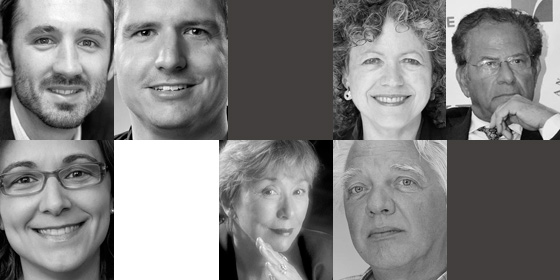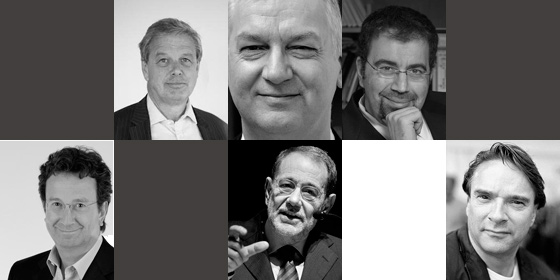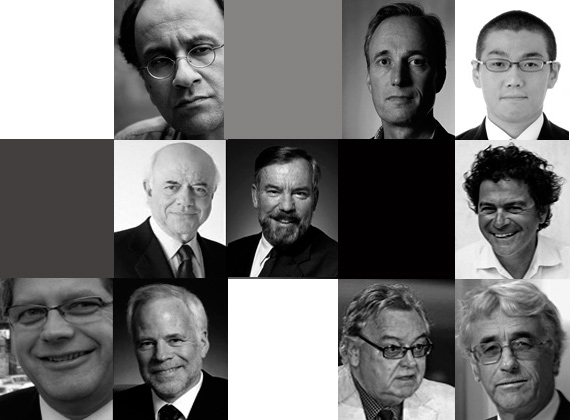The search for a definition for Europe is not an easy task, and particularly in the current scenario. This is why OpenMind has brought together a group of international experts to assess the different outcomes for Europe’s integration. 23 authors and a total of 20 articles are featured in the book entitled “The Search for Europe: Contrasting Approaches” (available to download free here in English and Spanish, and in .pdf, .epub and .mobi formats).
Who are the participants? The ten authors in this section all have a varied international profile and come from the world’s most prestigious institutions, and contribute a total of 8 articles in the first themed block. From left to right: Indermit Gill (World Bank), Martin Raiser (World Bank), Naotaka Sugawara (International Monetary Fund), Francisco González (BBVA), Peter Hall (Harvard University / London School of Economics), Colin Crouch (Warwick University), Alberto Alesina (Harvard University), Bart Van Ark (The Conference Board), Barry Eichengreen (California University) and Philip Cooke (Bergen University College).
Europe and its nations: politics, society and culture. The second section of the book explores the problems of politically articulating the European supranational project with the current national situation in each country, and examines the way citizens can be encouraged to identify more closely with the project. It also looks at the perception of Europe as a genuinely democratic space in which citizens can make their voices heard, the future of social policies, and the construction of a framework for coexistence based on common “European” values for people from different cultures.

The contributors in this second section include 3 women and 4 men, who address the more social aspects of European integration. From left to right: Christopher Bickerton (Cambridge University), Robin Shields (Bath University), Vivien Ann Schmidt (Boston University), Bichara Khader (Catholic University of Louvain), Nieves Pérez-Solórzano Borragán (Bristol University), Julia Kristeva (Paris 7 University) and Kees van Kersbergen (European University Institute in Florence).
The unresolved limits of Europe and the new global powers. The third section covers issues related to geopolitics and Europe’s external frontiers, such as which countries will or will not be members in the future, and the main challenges for European foreign policy in regard to both the neighboring regions and to Europe’s place in the new global order shaped by the increasing economic and political power of emerging areas.

Finally, the third themed block covers aspects related to geopolitics and the borders of the Union, analyzed by a line-up of 6 international experts: John Peet (The Economist), Thomas Christiansen (Maastricht University), Daron Acemoglu (MIT), Murat Üçer (Koç University), Javier Solana (Center for Economics and Global Geopolitics at ESADE) and Orlando Figes (London University).

Comments on this publication